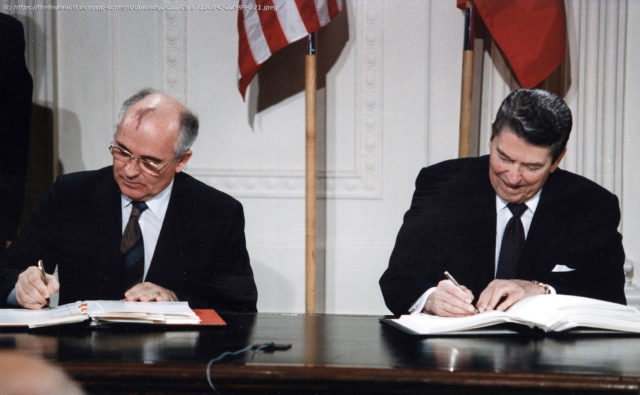Array
With the passing of the former general secretary of the Communist Party of the Soviet Union, Mikhail Gorbachev, the Cold War is back in the news. Prior to his death, and certainly, in the wake of it, several commentaries have credited him for ending the Cold War.
This is a common narrative and was summed up by one former American president who said that Ronald Reagan “was smart enough to allow the Cold War to end,” reflecting the idea that the U.S. had previously largely perpetuated the conflict with the former Soviet Union and not Moscow.
The end of the Soviet Empire didn’t “just happen” but was the direct result of an extraordinarily active and complex action plan put together and implemented largely by three world leaders: Ronald Reagan, president of the United States; Margaret Thatcher, prime minister of Great Britain, and Pope John Paul II, the leader of the Vatican and the Catholic Church worldwide.
The three were elected to their respective offices separated by a mere 24 months between October 1978 and November 1980. At the time, the future of freedom and democracy looked bleak. After all, from 1969, nearly 20 nations had fallen to totalitarianism or communism, mostly joining the Soviet orbit during the decade of détente and peaceful coexistence, including all of Indochina, Afghanistan, Iran, Nicaragua, Grenada, Angola, and Mozambique. Not only was the Soviet empire rapidly expanding, but so was its nuclear arsenal.
Miraculously, a little more than a decade hence, the USSR empire fell apart, and from Canada to Chile, every nation in the Western Hemisphere was free except Cuba and Haiti. Eastern Europe and the “captive nations,” as they were once called, were free, and the Western Pacific economic “tigers,” such as the Republic of Korea, Taiwan, Indonesia, Singapore, Malaysia, the Philippines, and Thailand, expanded their economic relations around the globe.
How was this accomplished? After all, although unknown to the West, by 1975, the director of the Soviet KGB, Andropov, was worried the Soviet empire was on the verge of collapse.
Yes, as he knew, on the surface, the “correlation of forces” as the Soviets saw things were moving in Moscow’s direction.






